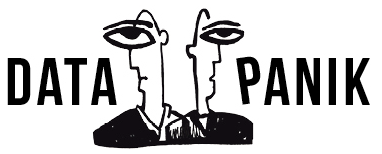Sedert de onthullingen van Snowden vliegen de vergelijkingen met George Orwells “1984” ons langs alle kanten om de oren. Jammer, vindt Noah Berlatsky, want er zijn romans die veel beter de geest vatten van de controlemaatschappij waarin we zijn terecht gekomen. In een artikel voor The Atlantic haalt Berlatsky twee voorbeelden aan van fictie die wat hem betreft heel wat dichter tegen de realiteit van surveillance aanschuurt.
“Perhaps a more central problem with using Orwell, though, is that Orwell imagined not just a totalitarian state, but a totalizing one. The Party in 1984 controls everything and watches everyone. People have no rights, no power—even language and metaphors themselves are officially vetted by the state machinery. This isn’t the world we live in, and, as Solove says, it’s not the world we’re “heading toward” either. Most people, most of the time, are not directly confronted with a police state.”
“That “most people” is, I think, crucial. There are, after all, some citizens who are watched and controlled in a systematic manner. Our massive prison population, for example, experiences surveillance and control on a par with that of Winston in 1984. Arun Kundnani, in his recently published “The Muslims Are Coming”, argues that Muslim communities in the U.S. are systematically infiltrated and observed in a manner comparable to the police states under Communism (a blueprint for “1984”). Police profiling programs like ‘stop and frisk’ are designed to give the authorities the power to regulate young black and Hispanic men, while leaving others largely unmolested. Big Brother is watching you—but only if “you” fit certain criteria.””
Dat idee, niet van een Big Brother die iedereen controleert, maar van een surveillance die gericht bepaalde groepen viseert, vindt Berlatsky in twee andere romans. De eerste is “Do Androids Dream of Electric Sheep?” van Philip K. Dick uit 1968.
“Do Androids Dream of Electric Sheep?” is set in a run-down future dystopia that is dilapidated rather than authoritarian. The protagonist, Rick Deckard, is a policeman, but he doesn’t spy on his neighbors or terrorize the general populace. Instead, he is focused on identifying, tracking down, and destroying androids. The surveillance apparatus and the murderous force of the state are targeted, specifically, towards those defined as different.”
“The fact that the difference is hard to see, or that Deckard at times thinks he himself might be an android, suggests the extent to which policing one group can bleed into policing everyone. But it also emphasizes the importance of difference, and the way that a vision of normality, of good guys and bad guys, is central to police power. Big Brother may stomp on a face forever, but that face isn’t his own face. Surveillance—Decker’s android test—codifies or creates differences, and those differences (of gender, religion, race) in turn justify surveillance.”
Berlatsky geeft nog een tweede voorbeeld, “China Mountain Zhang” van Maureen F. McHugh uit 1992.
“”China Mountain Zhang” is set in a future controlled by Communist China—which you’d think would be the perfect setting for an Orwellian authoritarian nightmare. But McHugh’s Communist authorities don’t try to control everyone the way Big Brother does. Instead, McHugh’s world looks more like ours, where “normal” people don’t have to think about the state too much. On the other hand, the protagonist, Zhang, who is gay, has to lie about his sexuality whenever he uses electronic communications, and one of his lovers is hounded to death by the police. Zhang also has to hide the fact that he has been genetically altered; he is originally Hispanic, but his parents changed him in the womb to appear Chinese in order to advance his career prospects. Zhang dissembles about the gene-splicing through much of his life—until he manages to move up economically to a level where the state doesn’t really care anymore. Facing surveillance and consequent control depends in the novel on a range of intersecting factors. Oppression is distributed unequally.”
De conclusie van Berlatsky:
“Using Orwell to understand NSA spying, ends up functioning as a distortion by metaphor. It suggests that all of us are equally targeted, and that the problem is that all of us are equally targeted—that middle-class non-marginal people are going to be stomped by Big Brother. The truth, though, is that the NSA data will likely be used primarily, as it always has been, against the androids and the Zhangs—which is why we need to try to find a metaphor that addresses not just liberty, but justice.”
Stop Comparing the NSA to 1984 (and Start Comparing It to Philip K. Dick)

